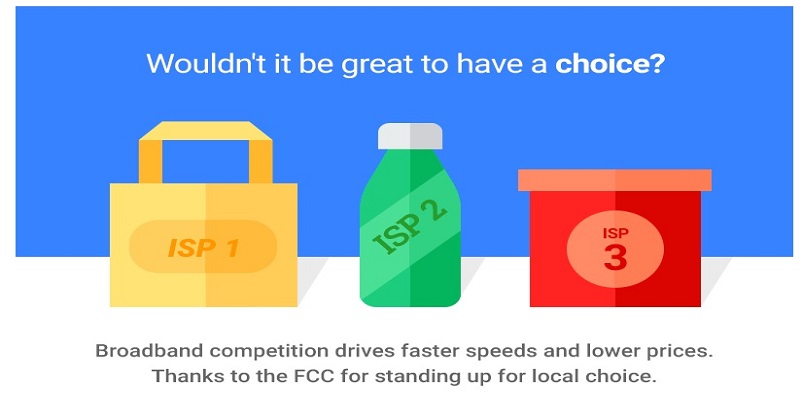 |
World Economic Forum’s AI Governance Alliance says a global effort is needed to create equitable access to artificial intelligence. Artificial intelligence holds the potential to address global challenges, but it also poses risks of widening existing digital divides or creating new ones. Three new Forum papers offer recommendations on building safe systems and technologies, ensuring responsible applications and transformation, and advancing resilient governance and regulation. Davos-Klosters, Switzerland, 18 January 2024 – The AI Governance Alliance (AIGA) released today a series of three new reports on advanced artificial intelligence (AI). The papers focus on generative AI governance, unlocking its value and a framework for responsible AI development and deployment. The alliance brings together governments, businesses and experts to shape responsible AI development applications and governance, and to ensure equitable distribution and enhanced access to this path-departing technology worldwide. “The AI Governance Alliance is uniquely positioned to play a crucial role in furthering greater access to AI-related resources, thereby contributing to a more equitable and responsible AI ecosystem globally,” says Cathy Li, Head, AI, Data and Metaverse, World Economic Forum. “We must collaborate among governments, the private sector and local communities to ensure the future of AI benefits all.” AIGA is calling upon experts from various sectors to address several key areas. This includes improving data quality and availability across nations, boosting access to computational resources, and adapting foundation models to suit local needs and challenges. There is also a strong emphasis on education and the development of local expertise to create and navigate local AI ecosystems effectively. In line with these goals, there is a need to establish new institutional frameworks and public-private partnerships along with implementing multilateral controls to aid and enhance these efforts. While AI holds the potential to address global challenges, it also poses risks of widening existing digital divides or creating new ones. These and other topics are explored in a new briefing paper series, released today and crafted by AIGA’s three core workstreams, in collaboration with IBM Consulting and Accenture. As AI technology evolves at a rapid pace and developed nations race to capitalize on AI innovation, the urgency to address the digital divide is critical to ensure that billions of people in developing countries are not left behind. On international cooperation and inclusive access in AI development and deployment, Generative AI Governance: Shaping Our Collective Global Future – from the Resilient Governance and Regulation track – evaluates national approaches, addresses key debates on generative AI, and advocates for international coordination and standards to prevent fragmentation. Unlocking Value from Generative AI: Guidance for Responsible Transformation – from the Responsible Applications and Transformation track – provides guidance on the responsible adoption of generative AI, emphasizing use case-based evaluation, multistakeholder governance, transparent communication, operational structures, and value-based change management for scalable and responsible integration into organizations. In addition, for optimized AI development and deployment, a new Presidio AI Framework: Towards Safe Generative AI Models – from the Safe Systems and Technologies track – addresses the need for standardized perspectives on the model lifecycle by creating a framework for shared responsibility and proactive risk management. AIGA also seeks to mobilize resources for exploring AI benefits in key sectors, including healthcare and education. Quotes from the initiative: “As we witness the rapid evolution of artificial Intelligence globally, the UAE stands committed to fostering an inclusive AI environment, both within our nation and throughout the world. Our collaboration with the World Economic Forum’s AI Governance Alliance is instrumental in making AI benefits universally accessible, ensuring no community is left behind. We are dedicated to developing a comprehensive and forward-thinking AI and digital economy roadmap, not just for the UAE but for the global good. This roadmap is a testament to our belief in AI as a tool for universal progress and equality, and it embodies our commitment to a future where technology serves humanity in its entirety.” – H.E. Omar Sultan Al Olama, Minister of State for Artificial Intelligence, Digital Economy and Remote Work Applications of the United Arab Emirates “Rwanda’s participation in the AI Governance Alliance aims to ensure Rwanda and the region do not play catch up in shaping the future of AI governance and accessibility. In line with these efforts, Rwanda’s Centre for the Fourth Industrial Revolution, in collaboration with the World Economic Forum, will host a high-level summit on AI in Africa towards the end of 2024, creating a platform to engage in focused and collaborative dialogue on the role of AI shaping Africa’s future. The event’s primary goal will be to align African countries on common risks, barriers, and opportunities and, ultimately, devise a unified strategy for AI in Africa.” – Paula Ingabire, Minister of Information Communication Technology and Innovation of Rwanda “IBM continues to drive responsible AI and governance. We all have an obligation to collaborate globally across corporations, governments and civil society to create ethical guardrails and policy frameworks that will inform how generative AI is designed and deployed. IBM is proud to work with the Forum’s AI Governance Alliance as the knowledge partner for this paper series.” – Gary Cohn, IBM Vice-Chairman . “The evolution of AI is unique in that the technology, regulation and business adoption are all accelerating exponentially at the same time. It’s critical that the public and private sector come together to share insights, resources and best practices for building and scaling AI responsibly. Leaders in this space must prioritize inclusive AI so that the benefits of this technology are shared in all parts of the world, including emerging markets. The Forum’s three-part briefing paper series offers insightful considerations across responsible applications, governance and safety to empower businesses, respect people and benefit society.” – Paul Daugherty, Chief Technology Innovation Officer, Accenture. |
Tag Archives: public-private partnership
FCC Promoted American Broadband Competition And Net Neutrality
In late 2014- early 2015, the FCC stood up for more competition and more choice in local broadband. This is a critical step in making faster, cheaper Internet available for all Americans.
You may have heard that the Federal Communications Commission (FCC) just put in place rules to protect ‘net neutrality.’ That’s big news. But there was another important decision today to help keep the Internet competitive and open — and while it’s getting less attention, it may be just as important. As part of its agenda to encourage meaningful competition in high speed broadband for Americans, the FCC supported allowing cities to make their own decisions about investing in new broadband networks. More needs to be done to drive innovation in bigger, faster broadband, but this was a good step.

While the FCC’s net neutrality rules can help prevent Internet access providers from relegating some applications to a “slow lane,” this move alone won’t lead to a world where every consumer has an ultra fast connection to the entire Internet. That’s going to take more competition and innovation in new broadband networks.
It’s been nearly five years since we offered to build a fiber-optic network in one U.S. city as an experiment — and as we’ve expanded Google Fiber into a business, we’ve seen firsthand how faster speeds can improve lives and give cities new platforms for economic development. Google is not the only one innovating in this area. Along with investments by other private providers, cities like Lafayette, LA and Chattanooga, TN have been investing in their own networks and developing public-private partnerships to that end.
The FCC decided that it’s important for users to be able to control their own Internet connections and for communities to make their own choices to suit their local needs for broadband. While it may not make sense for most governments to operate broadband networks themselves, we think faster, better broadband for all Americans is too important to remove an option for deployment.
Thank Chairman Wheeler and the FCC for supporting local choice and competition in broadband networks: https://takeaction.withgoogle.com/thank-the-fcc For the Silo, Derek Slater Google Inc.
P.S. If you want to learn more about the ingenuity of cities supporting broadband investment and competition, check out Next Century Cities.
Supplemental- Test if your Internet Service Provider is “throttling down” your internet connection speed. (requires Java plug-in installed)
How competitive is the Canadian Residential Broadband Market? ( Essay from 2009- has anything improved since?)

